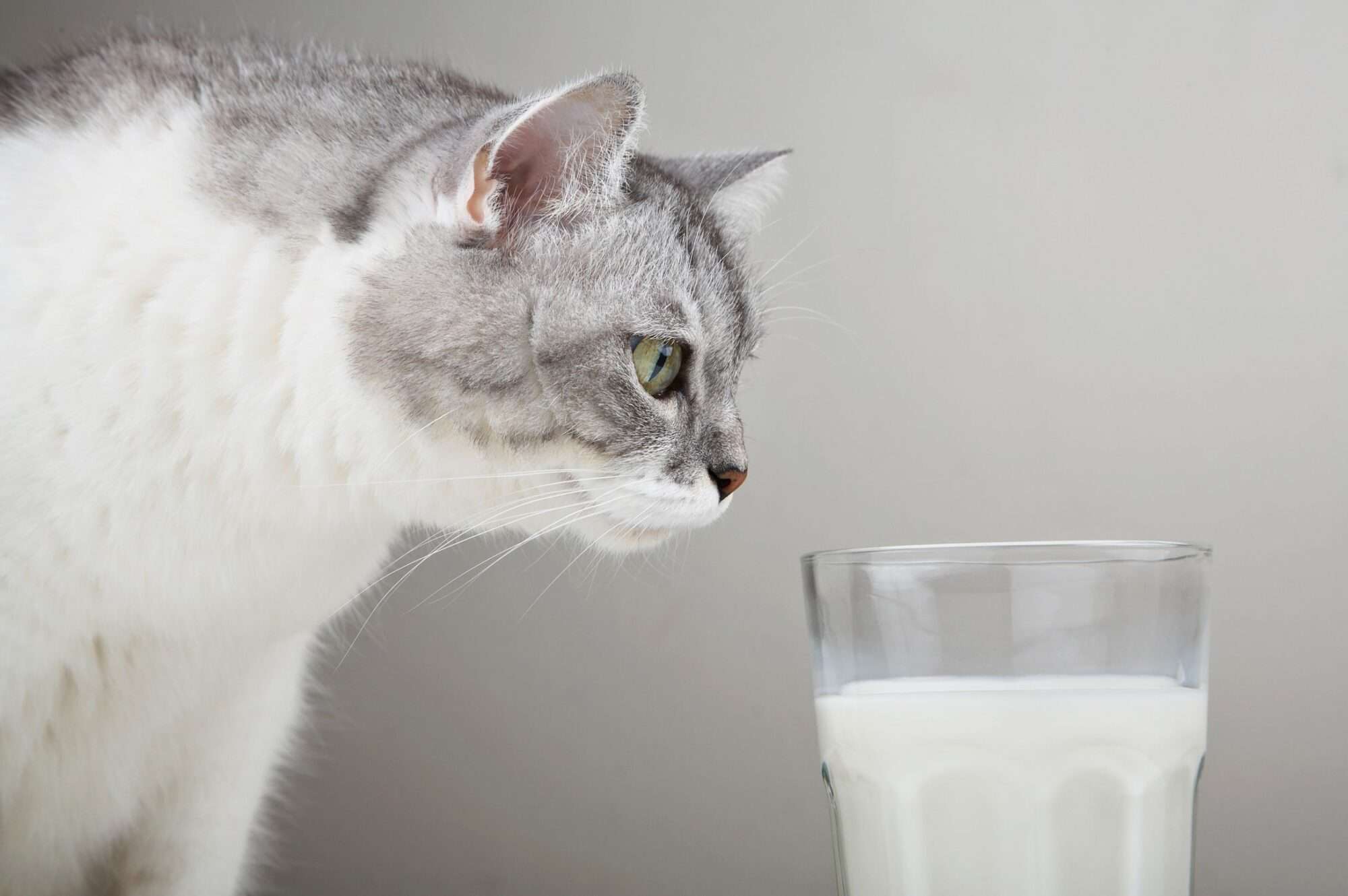Asking for Trouble: Should Cats Drink Milk?

Images of kittens lapping milk from a saucer are just as ubiquitous and inaccurate as pictures of cats playing with balls of yarn. For some reason, these illustrations of feline predilections have persisted into this modern era, but both milk-drinking and yarn-playing should be viewed as the relics they are. We know that cats shouldn’t play with yarn because of the risk of swallowing it. Equally important is the understanding that when cats drink milk, they are likely to face the symptoms of lactose intolerance.
Beyond Infancy
Kittens survive beyond infancy because of their dependence on their mother’s milk (remember our blog about kneading?).
Typically, kittens are weaned around 4 weeks old, but the process can take several weeks to complete. Early weaning may cause problems for a hungry, developing kitten but a cat milk alternative can help bridge the gap. In the absence of a commercial cat milk product, cow’s milk can get a kitten through as a last resort.
A Look at Enzymes
As they age, cats lose the ability to digest lactose, the main sugar found in dairy, because their digestive tract stops producing the enzyme lactase. When older or adult cats drink milk, they cannot effectively digest the lactose in the intestines. The lactose is fermented by colonic bacteria, a process that creates volatile fatty acids.
Super Uncomfortable
While some cats may not ever be bothered by lactose intolerance, other cats will experience painful bloating, cramping, diarrhea, and vomiting about 8-12 hours after ingestion. This could be explained by the continued production of lactase throughout life, and only occurs in about a third of all cats.
Planning Ahead
Kittens about two months of age can take their meals in solid form. That being said, however, they still need the necessary balance of vitamins and nutrients designed for growing kittens. Age-appropriate food is beneficial for cats of all the life stages, but is particularly essential during kittenhood.
If you need any help finding the right food for your growing kitten, please let us know.
Cats Drink Milk, but Not Always
Treating milk and dairy products like toxic food may really save the day. Never leave dairy products out on the table or counter, and train your cat not to sample human foods.
Serious discomfort will eventually lapse after cats drink milk, and may lead them to healthier decisions down the road. Always keep an eye on symptoms and let us know if diarrhea persists longer than a day, as we always want to prevent dehydration.
Alternatives to Milky Goodness
A healthy, active, well-fed cat may not be easily drawn in by milk’s smell of fat and protein. If they are abnormally tracking it down or begging for it, it may be time to address their nutrition. Only offer high-value treats and carefully monitor meal portions and exercise. Distract your kitty with some cool new toys.
If we can assist you with additional questions or concerns, please give us a call at (704) 334-4684. We are always here for your cat at Animal Medical Hospital and 24 Hour Urgent Care.
